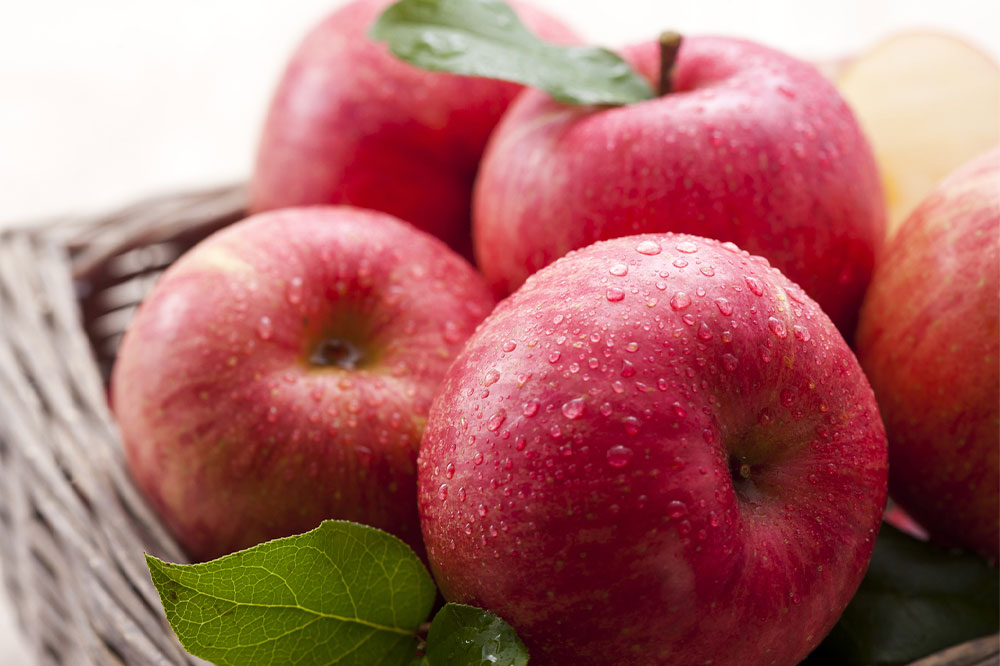10 healthy foods that provide constipation relief

Constipation refers to the inability to pass stools regularly. There are several risks and known causes linked to underlying health complications that trigger this condition. It can also be a side effect of prescription therapies that affect digestion. However, it is possible to manage and even cure constipation with simple changes in lifestyle and nutritional habits. Some healthy foods that help prevent flare-ups and provide immediate and long-term relief are listed below.
Apples
Apples are an excellent source of soluble fibers called pectin, a natural compound concentrated in the fruit’s skin. When digested, pectin is rapidly absorbed by the gut bacteria to pull water inside the colon. This reaction helps soften the stools and facilitates faster movement along the digestive tract. Pectin also naturally helps increase the gut bacteria necessary for promoting metabolic activities that control digestion.
Pears
Pears are a tasty alternative to apples that also provide the necessary boost of soluble fibers. In addition to fiber that helps bulk up stools, pears are also a rich source of sorbitol that further acts as a natural laxative. And the fructose (natural sugars) in the fruit helps pull water inside the colon to help soften the stools. A single pear fruit packs 5.5 grams of fiber, which is nearly a fifth of the daily requirement suggested for adults. You can eat it raw or use it in baking and savory dishes.
Assorted berries
Blackberries, raspberries, strawberries, blueberries, and cranberries are excellent fruits to include in the daily meal plan to relieve constipation. The high fiber and water content in berries help loosen stools and promote movement along the digestive tract. The soluble fibers also lubricate the passage, allowing stools to move freely. One cup of assorted berries can easily provide eight to ten grams of fiber, nearly a third of the daily intake limit recommended for adults.
Prunes
Prunes are a rich source of soluble fibers and are loaded with a naturally occurring compound called sorbitol. Sorbitol is a laxative that pulls water into the colon to soften the stools. Prunes also contain concentrated amounts of cellulose that also increases the bulk of the stools. In addition, this super fruit also contains phenolic compounds that stimulate the growth of good bacteria in the gut necessary for digestion.
Nuts and seeds
Walnuts, almonds, and pecans are among the richest sources of fiber, healthy fats, and compounds that promote healthy gut bacteria production. The fiber adds bulk to the stools making it easy to pass along, whereas the healthy omega-3 fatty acids lubricate the digestive tract to facilitate better movement. In addition, walnuts contain arginine, a compound that further promotes anti-inflammatory properties. Including a spoonful of chia seeds with assorted nuts in daily nutrition is also beneficial. Chia seeds naturally contain stool-bulking fiber and can be easily included in breakfast options like oatmeal or smoothies to promote better digestion.
Fiber-rich vegetables
Broccoli is a vegetable that contains organic compounds essential for promoting good gut bacteria. The sulforaphane found in this veggie also speeds up digestion to prevent stools from backing up in the digestive tract. Spinach and Brussels sprouts are also good alternatives that help bulk up the stools to enable easy passage along the digestive tract. Even artichokes are a rich source of inulin, a natural prebiotic that boosts the growth of healthy gut bacteria and promotes a better frequency of stool formation. In addition, nutrition experts also advise including sweet potatoes, rich in pectin, lignin, and cellulose, all essential compounds that counter constipation.
Chickpeas and soybeans
Most types of beans and legumes are suggested to promote constipation relief. Chickpeas are an excellent source of fiber and protein. Including a cup of chickpeas regularly promotes digestion. In addition, it is also beneficial to include soybeans (usually used to make tofu), one of the best sources of fiber. A cup of green peas will also provide much-needed soluble fibers to promote digestion.
Watermelon and citrus fruits
Watermelon is one of the best fruits for the body to remain hydrated naturally. The fruit pulp is loaded with water that helps move foods from the stomach to the digestive tract. When all options fail, eating a few slices of fresh watermelon can help move things along without putting too much pressure on the tract. Citrus fruits like oranges, mandarins, and grapefruits are excellent sources of vitamins, nutrients, and fibers that help relieve constipation. These fruits contain organic compounds like pectin and naringenin that help lubricate the colon and promote a laxative effect.
Brown rice
Brown rice is unrefined and contains insoluble fiber that aids in digestion. It is one of the best sources of fiber among whole grains. Its high fiber content additionally helps relieve constipation, promotes bulking of the stools, and prevents it from hardening. Brown rice also nourishes gut bacteria and improves intestinal health. Alternatively, one can include oats, another excellent whole grain that is digested slowly, allowing the body to absorb vital nutrients.
Probiotic drinks
Apart from foods, nutritionists also suggest including probiotic drinks like kefir to manage constipation. People who don’t have any food allergies can include some probiotics to boost healthy gut bacteria and enhance metabolism. A faster metabolism helps speed up digestion and provides some constipation relief. In addition, common dairy products like yogurt can boost healthy bacteria growth in the gut to improve digestion.
Experts also suggest increasing water intake when constipation symptoms develop. These fluids are released in the digestive tract to soften the stools and help things move along. Nutritional experts advise drinking water on an empty stomach right after waking up to boost all vital functions linked to the body’s metabolism. Eating healthy is one of the best ways to manage constipation. To understand which food items work best for your condition, consult a nutritionist for expert advice.
















